The NGIAtlantic.eu project has ended in February 2023. For the follow-up initiative, visit NGI Transoceanic.
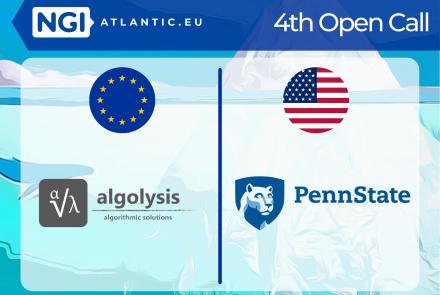
Project Coordinator (EU) :
Algolysis LtdCountry of the EU Coordinator :
CyprusOrganisation Type :
SMEStarting date :
ARES: A Next-Generation, Erasure Coded, Shared Distributed Storage System Experiment
Open Internet Architecture and Renovation
In this project, the EU-US team plans to run thorough experimental evaluations on the performance of a novel protocol ARES [1], which implements an Atomic Distributed Shared Storage space over asynchronous, failure prone, message passing network nodes, and it ensures data availability and survivability. The EU-US team will design experiments that will test ARES performance under scalability, resource intensive, and fault-tolerance scenarios, and attempt to identify bottlenecks and shortcomings that may prevent ARES from being readily applied in a real, practical system. Cross-Atlantic experiments will be conducted by reserving network nodes both in the EU (through Fed4FIRE+ testbeds) as well as in the US through infrastructure at Penn State University (PSU) premises.
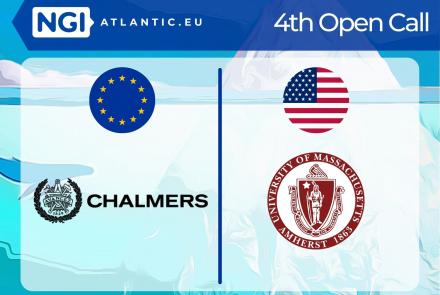
Project Coordinator (EU) :
Chalmers University of TechnologyCountry of the EU Coordinator :
SwedenStarting date :
Reducing Carbon footprint of Computing Systems
Greening the Internet
The goal of our collaborative experiment is to quantify the carbon impact of modern cloud applications and experimentally demonstrate how the software optimizations and elastic nature of workloads can be leveraged to make cloud applications sustainable and zero- carbon. The collaboration leverages two ongoing projects at Chalmers University and the University of Massachusetts (UMass). The US team will compare how the deployment in Sweden/EU versus a UMass deployment can affect the carbon footprint of the running applications.
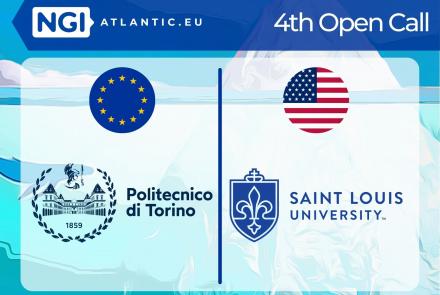
Project Coordinator (EU) :
Politecnico di TorinoCountry of the EU Coordinator :
ItalyOrganisation Type :
AcademiaStarting date :
Distributed Learning for Resilient Virtual Network Management at Scale
Open Internet Architecture and Renovation
In this project we aim at investigating and experimenting with algorithmic and system solutions that efficiently allow the distribution of multi-agent network models for self-scaling and resilient Next Generation networks. This project will benefit from the collaboration between EU (Politecnico di Torino, POLITO)
and US (Saint Louis University, SLU) partners. POLITO will mainly contribute to the design and implementation of the required user interfaces, while SLU will offer its experience in NSF-funded large-scale testbeds such as Chameleon Cloud and GENI.
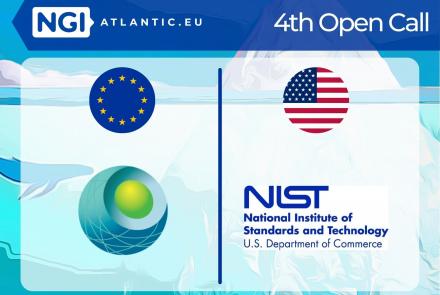
Project Coordinator (EU) :
National University of Ireland GalwayCountry of the EU Coordinator :
IrelandOrganisation Type :
AcademiaStarting date :
BONSAI:cross-Border experiments for OpeN data testbedS interconnection for Atlantic Interoperability Experiment
Experimental Platform interconnections
The Next Generation Internet should support large amounts of distributed data to facilitate big data processing and storage; AI solutions and Recommender Systems are examples of services that would benefit from this approach; however, the gap resides in the methods to classify, identify, access, and share the data over the Internet.
EU-USA BONSAI is a collaborative cross-Border testing framework for running experiments that works over large amount of open data for optimal access, using holistic methods to classify, identify and access data and utilizes its designed service data access applications towards facilitating that information frameworks and data testbeds can provide data portability and interoperability.
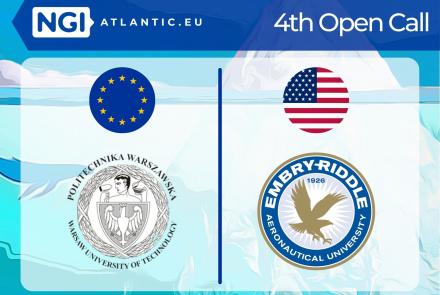
Project Coordinator (EU) :
Warsaw University of TechnologyCountry of the EU Coordinator :
PolandOrganisation Type :
AcademiaStarting date :
Experiment on security features of multi-provider mobile network infrastructure
Open Internet Architecture and Renovation
In this experiment, we will analyse both security frameworks and will propose a security baseline for multi-vendor infrastructures. The challenge to security that we are addressing in this project appears when decoupling the 5G network functions and applications from the infrastructure and accepting that different players construct parts of the network. Our basic scenario will include requirements of critical Unmanned Aerial Vehicles (UAV) platform (as the Slice Tenant) hosted by the US partner Embry-Riddle Aeronautical University (EAU).
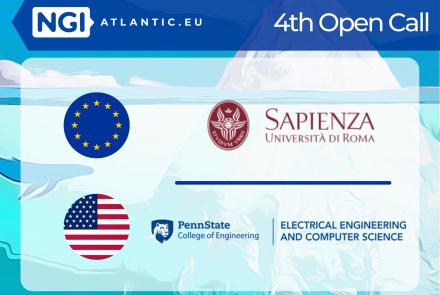
Project Coordinator (EU) :
Sapienza University of RomeCountry of the EU Coordinator :
ItalyOrganisation Type :
AcademiaStarting date :
Vulnerability Assessment and Robust Defenses for Optimized Attacks in Dynamic SDNs Experiment
Strengthening Trustworthiness and Resilience Of the Internet
Software-Defined Networking (SDN) has fundamentally improved the observability and controllability of computer networks through its logically centralized control plane architecture. However, this new architecture also exposes new attack surfaces due to the heavy interdependency between the centralized control plane and the distributed data plane. The primary objective of this project is to quantify the vulnerability of SDN to intelligent host-based adversaries, with a secondary objective of developing defenses by improving the inherent robustness of the network.
In particular, the US partner team, led by Prof. Ting He, will carry out experiments on understanding the vulnerabilities of these networks to cache pollutions attacks. The EU team, led by Prof. Novella Bartolini and Dr. Viviana Arrigoni, will consider a network subject to the aforementioned vulnerabilities, where the cache attacks cause either anomalously high congestion or software failures.
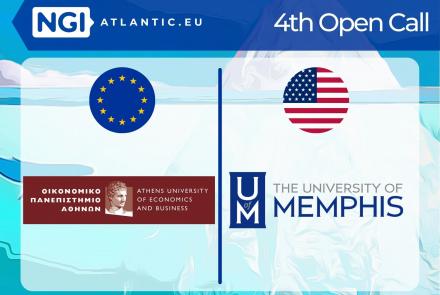
Project Coordinator (EU) :
Athens University of Economics and Business - Research CenterCountry of the EU Coordinator :
GreeceOrganisation Type :
AcademiaStarting date :
SECOND: Securing Content Delivery and Provenance
Open Internet Architecture and Renovation
SECOND will implement a set of extensions to the Named-Data Networking (NDN) implementation of the Information-Centric Networking (ICN) paradigm, using Decentralized Identifiers (DIDs) to support a self-sovereign, content authentication scheme. SECOND will integrate DIDs into the core NDN implementation, allowing it to secure content caching and forwarding, enable the binding of DIDs to human-readable content names, to simplify user interaction, and support partial revelation of encrypted content without modifying its DID. In addition to performing experiments on the NDN testbed, the EU partner will modify the core NDN code and perform experiments on the US partner’s infrastructure, under their guidance.
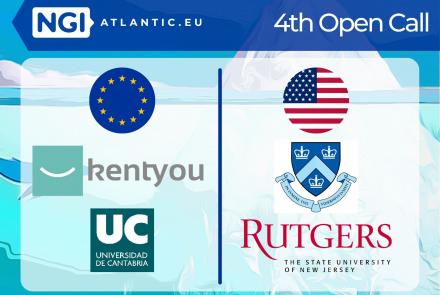
Project Coordinator (EU) :
KentyouCountry of the EU Coordinator :
FranceOrganisation Type :
SMEStarting date :
FedIntersect: EU-US federated testbed for cross-atlantic experiments for urban smart intersections Experiment
Experimental Platform interconnections
The project aims at building an experimentation framework to test smart intersection applications on top of a federated testbed composed of Smart Santander city scale testbed and Columbia University’s COSMOS testbed in Manhattan, NYC. The testbed captures data from cameras at intersections, process them to identify vehicles and pedestrians and perform predictive analysis for traffic flow and detect dangerous situations. The information will be made available to application developers via common APIs and data models.
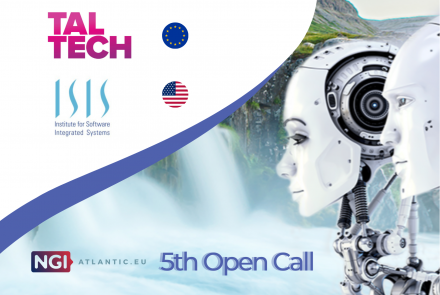
Project Coordinator (EU) :
Tallinn University of TechnologyCountry of the EU Coordinator :
EstoniaOrganisation Type :
AcademiaStarting date :
Hyper 5G
Experimental Platform interconnections
Hyper-5G research project aims at experimenting with a network digital twin (DT), which can process data gathered from remote distributed EU-US IoT infrastructures and provide closed-loop control to build a common, powerful federated learning model that embeds edge intelligence and twins with an end-to-end (e2e) view of the network.
Tallinn University of Technology, the EU partner, is involved in the configuration and deployment of DT services across the GRID5000 and Fit IoT-Lab, and assess Vanderbilt University, the US partner, in the interconnection of the Chameleon platforms. Vanderbilt University is experimenting with network interconnection, resource configuration, and evaluation of hierarchical federated learning experiments in Chameleon Cloud.
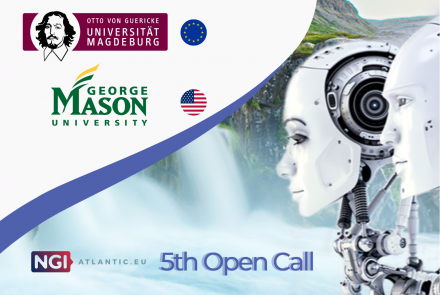
Project Coordinator (EU) :
Otto-von-Guericke-University MagdeburgCountry of the EU Coordinator :
GermanyOrganisation Type :
AcademiaStarting date :
Leveraging Path Diversity to Enhance Resilience, Scalability and Energy-Efficiency with SCION
Experimental Platform interconnections
SCION is a novel NGI architecture that has reached a level of maturity, which renders it ready today for large-scale deployment. Thus, the objective of this project is to deploy SCION over the NSF BRIDGES infrastructure over two very high-speed transatlantic links. GMU will enable and support the SCION deployment on NSF BRIDGES, with OVGU providing a European SCION testbed over GEANT. Our project demonstrates the SCION benefits by means of experiments between the US and Europe over the SCIONLab testbed to show the privacy-enhancement (e.g., by splitting traffic over multiple paths) and improved reliability (e.g. with multi-path and seamless path failover) over SCION, as well as the scalability of our SCION-based path discovery mechanisms which help to effectively reduce the network’s power consumption and incentivize ISPs and transit providers to shift towards greener electricity.
